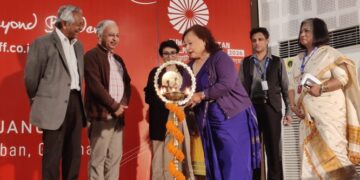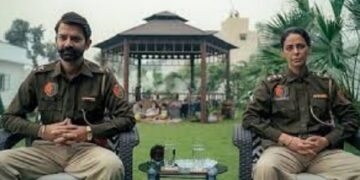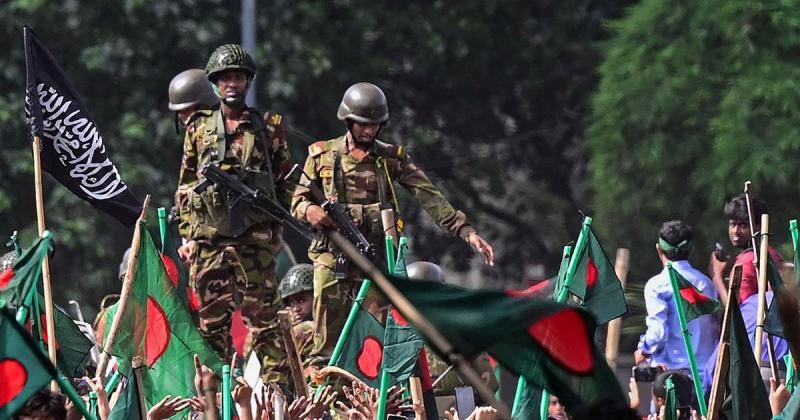Contrary to earlier reports, the Bangladesh International Crimes Tribunal’s October 8 ruling on 24 army officers continues to divide the officer corps even as there are indications that a previously dismissed brigadier general, who was reinstated to that position in December 2024, is playing a leading role in plotting the course of events that could cause further dissension within the force.
Army chief General Waker-uz-Zaman continues to remain under pressure as a consequence of the sentiments expressed at a meeting of officers on October 9 when the schism was apparent as each side expressed strong opinion on the ICT’s order and issuance of arrest warrants against the 24 officers, 13 of whom are serving officers, for their alleged role in enforced disappearances, secret detentions and torture during Sheikh Hasina’s 15-year tenure at the helm.
Gen Zaman, who recently cancelled travelling to India to attend two key international conferences scheduled to be held between October 13 and 16, subsequently chose to visit Saudi Arabia for a four-day visit (October 14-18). But even this visit could get scrapped as a consequence of the upheavals within the army.
At the centre of the raging controversy is Brigadier Abdullahil Aman Azmi, who was dismissed from service on June 23, 2009, before being reinstated with all “applicable financial and other benefits” on December 24, 2024.
The son of once-imprisoned Jamaat-e-Islami amir Ghulam Azam, Azmi, who was in secret detention during Sheikh Hasina’s tenure before he was released on August 6, 2024, remains a key figure among officers who want legal proceedings against the 24 officers. Born in December 1958, Brig Gen Azmi’s parent unit in the army is the East Bengal Regiment. Ghulam Azam died at the age of 91 in 2014.
The “divisive” issue surrounding the 24 officers, including one lieutenant and four major generals, besides several brigadiers, colonels and majors, dominated discussion at a gathering of about 250 Bangladesh Army retired officers, held at ‘The Town Hall’ restaurant at Noor Tower in Dhaka’s Ibrahimpur area.
While the chief guest at this gathering was Lt Gen (retd) Aminul Karim, six other retired officers, including four colonels and two majors, played a leading role in the proceedings related to the legal fate of the 24 officers.
There is variance in data on the number of army officers or other ranks who, since at least 2001, underwent detention. While the Aayin O Salish Kendra, an NGO, claimed that 1,443 army officers and other ranks underwent detention, the same organisation listed 629 instances of enforced disappearances between 2007 and 2023. Of these 629, the remains of 78 individuals have so far been recovered.
Another NGO, Odhikar, found in its probes 63, 107, 181 and 65 cases of enforced disappearances and detention in 2004, 2005, 2006 and 2008, respectively. Records of the notorious Rapid Action Battalion show that the numbers for the same years were 65, 113, 195, 93 (2007) and 80.
In this context, sources cited a case of alleged “misuse” of RAB, which in 2005 was instructed by the then Home Secretary Omar Farooq to liquidate in an alleged “crossfire” an Islami Chhatra Shibir functionary known as ‘Ahmaddiya’ (Ahmed), based on the verbal instructions by a Chittagong Jamaat-e-Islami leader Shahjahan Chowdhury.
While the line dividing army officers in support of and against the ICT’s order has grown sharp since October 8, reflecting two distinct camps in the army, much depends on the course that Gen Zaman takes in the face of mounting pressure.
Retired senior army officers Northeast News spoke with pointed to Chapter 5 of the 1962 Army Act, which says categorically that “any person subject to this Act who at any place in or beyond Bangladesh commits any civil offence shall be deemed to be guilty of an offence against this Act and, if charged therewith under this section, shall be liable to be dealt with under this Act”.
Besides, the relevant provision of the Army Act says that “the powers of a court martial or an officer exercising authority under section 23 to charge and punish any person under this section shall not be affected by reason of the fact that the civil offence with which such person is charged is also an offence against this Act”.
These provisions would be applicable in the case of the 13 serving army officers against whom the ICT’s charges apply.
A three-judge bench of the ICT, on October 8, showed unusual haste in instructing that its order – on the execution of the arrest warrants – be “transmitted to the Inspector General of Police at once for taking necessary measures at his end for causing the said persons arrested”.
ALSO READ: Bangladesh Army top brass reconciled to trial of 24 officers under civilian laws
Copies of the ICT order were also “transmitted” to 12 army branches, including the Chief of Army, Chief of General Staff, Adjutant General, Directorate General of Forces Intelligence, DG NSI, Principal Staff Officer (Armed Forces Division), Secretary to the Chief Adviser, Director of Military Intelligence, Director of Personnel Service Directorate (Bangladesh Army), Army Security Unit Commandant, the Provost Marshal and the Army MP Unit for Information CEO.















